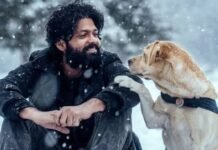Romanticism, was an artistic, literary and intellectual movement in 19th century (1800-1850).
Romanticism is also known as Romantic era in literature, was an imaginative, poetic, cerebral movement that emanate from Europe towards the end of 18th century (1800-1850) the most of areas peaks in terms of end 18th century. Romanticism can be seen as declining the principal of order, calm and harmony that balance the civilization and idealization of rationality that epitomize classicism in late 18th century Neoclassicism.
It was also some exponse that rejoinder against the enlargement as well as against the 18th century rationalism romanticism highlights the individual the subjective, the irrational, the imaginative, the spentameans, the emotional, the visionary, and the transcendental.
The mannerism vantage points of Romanticism are as follows: Intensity cherishing beauty of nature; A general exultation of emotion over reason of the sence over intelligence; An engrossment with the genius, the hero, and an extraordinary figure in general and focus on his or her passion and inner struggles; A new view of the originator as a supremely individual creator, whose artistic creature is more important then strict attachment to formal rules and traditional cource of action.
Prominence upon imagination as a gateway to supernatural experience and the spritual truth of nature; An obsessional interest in folk culture and the mediaeval period; A attestation for the non-native, the remote, the peculiar, the unnatural, the monsters, the diseassed and even the sqanic.
Romanticism is the 19th century movement that evolved in Europe in retaliation to the industrial revolution and the adversity of the erudition values of reason. Romanticism materialize that after 1789, the year of French revolution that caused a pertiment social change in Europe, based on some idea of literary, fraternity and legality the new movement came into existence, that focused to highlight the emotions and irrational world of artistic and literature as opposed to the privilege of Rationality during Neoclassicism.
Romanticism proper was herald by several concomitant developments from the mid-18th century, termed as Pre-romanticism. Among such swing with a new cherishing of the mediaeval romance was a tale or ballad of chivalrous adventure whose accenture an individual heroism and on the unnaturalized and my steruous was in clear dissimilarity to the graceful privilege of classical forms of literature such as Neoclassicism tragedy or the English heroic couplet in poetry. The new interest in comparatively of the past was to be a presiding note of Romanticism.
Romanticism in English literature originated, in the beginning of 1790 with the publication of the “Lyrical Ballads” of William Wordsworth and Samuel Taylor Coleridge. Wordsworth’s “Preface” to the second edition of Lyrical Ballads in 1800 in the description of poetry as “the spontaneous overflow of powerful feelings,” became the proclamation of the English Romantic movement in poetry.
William Blake was the third principal poet of Romanticism in the early stage in England. The first stage of Romantic movement in Germany was noticeable of alteration in both content and literary style by the preoccupation of the mistrious, subconscious and the supernatural elements of the wealth in the style of literary theory in Romanticism.
A wealth of aptitude including Jean Paul, Wolfgang Von Goethe, August Wihelm and Friedrich Von Schlegel, belongs to the first stage of Romantic period. During the French revolution Mandame de Staël, Vicomte de Chataubriand were the chief assailant of Romanticism, by righteousness of the ascendancy of historical therotical writings.
The second stage of Romanticism comprising the terms near about 1805 to 1830, was marked as cultural nationalism and new attentive to the national origin that being asserted by collecting and imitating of native folklores, folk ballard and Poetry, folk dance and music were being ignored previously in mediaeval and Renaissance period. The imaginative writer Sir Walter Scott, who is often consider as a historic novelist, on the mean time the English romantic poetry came into existence such as John Keats, Lord Byron and Percy Bysshe Shelley(PB Shelley).
A remarkable by-product of Romantic interest were dealing with emotion and spritual nature. Mary Shelley’s “Frankenstein” and work by Charles Robert Maturin, the Marquis de Sade and E.T.A Hoffmann.
The 1820’s Romanticism had embarassing spred almost in Europe. In the later second stage, the movement was less ubiquitous approach and concentrate in the nation’s historical and cultural legacy and examine the passion and struggle of individuals. In Romantic literature writers like Thomas De Quiancey, William Hazlitt, Charlotte Bronte, Emily Bronte and Anne Bronte from England and Aleksandr Pushkin and Mikhail Lermontov from Russian influenced more in the Romantic age of Literature.

The works in Romanticism or romantic era is partly spoke to a wider audience and partly reflection in the books.
Photography, is the dexterity that became swinging in today’s world, with subsist of 5 categories.












































